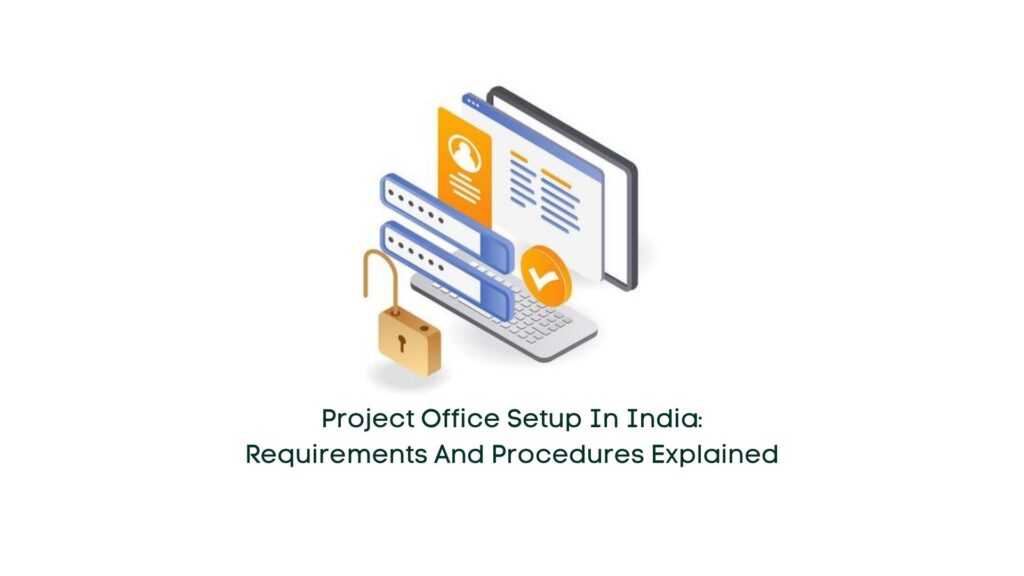
27 Feb Project Office Setup in India: Requirements and Procedures Explained

In the pursuit of establishing a presence in India, foreign entities often grapple with the question of the most suitable entry route. Among the various options available, setting up an office stands out, offering avenues like branches, liaison offices, or project offices. For entities with time-bound objectives, a project office emerges as a viable choice, serving as a representative hub for the parent company’s interests in India.
This article delves into the intricacies of establishing a project office, encompassing the legal prerequisites, compliance obligations under the Foreign Exchange Management Act, 1999 (FEMA) and Companies Act, 2013, and the procedures for closure, providing a comprehensive roadmap for prospective investors.
Understanding Project Offices:
Foreign entities commenced their foray into the Indian market in the early 1990s, marking the inception of the journey toward business expansion. Setting up a foreign office, notably a project office, serves as the initial stride in this trajectory.
A project office typically denotes a business establishment in India representing the interests of a foreign company engaged in project execution within the country. Governed by FEMA and the Foreign Exchange Management Regulations, 2016, project offices operate within a regulatory framework that encompasses branches, liaison offices, and project offices.
Permission from the Reserve Bank of India (RBI) is imperative for establishing a project office in India. Preceding the establishment, a contractual agreement with an Indian company is mandatory, alongside adherence to the stipulations of the Companies Act and RBI guidelines.
Criteria for Establishing a Project Office:
Foreign entities seeking to establish a project office must meet specific conditions, including:
- Direct funding of the project through inward remittance from abroad.
- Funding facilitated by bilateral/multilateral International Financing Agencies.
- Clearance from relevant authorities.
- Granting of a loan by Public Financial Institutions or banks to the contracting company.
Eligibility and Application Process:
Entities meeting the general conditions can proceed to establish a project office in India. While RBI grants general permission for most cases, certain scenarios necessitate prior approval from RBI or government consultation.
Applications are typically channeled through AD Category-I Banks, especially in cases involving citizens or entities from specified countries, regions like Jammu and Kashmir, or sectors such as defense and telecommunications.
Entry Routes:
The entry route for establishing a project office depends on the nature of the foreign entity’s principal business:
- RBI Route: Applicable for sectors allowing 100% Foreign Direct Investment (FDI) under the automatic route.
- Government Route: Considered for sectors where 100% FDI is not permissible, with applications processed by RBI in consultation with the Finance Ministry.
Registration Process and Documentation:
The registration process entails meticulous documentation and adherence to procedural formalities:
- Submission of Form FNC and requisite documents to the designated AD Category-I bank.
- Allotment of the Unique Identification Number (UIN) by RBI after scrutiny.
- Approval for setting up the project office by the AD Category-I bank post-due diligence.
- Post-establishment obligations including filing of requisite forms, opening a bank account, and compliance with tax and regulatory frameworks.
Closure Procedure:
Upon completion of the project or decision to terminate operations, the closure process ensues, involving submission of necessary documentation to the designated AD Category-I bank. These documents include approvals, auditor’s certificates, confirmations regarding pending legal proceedings, and compliance reports.
Conclusion:
The regulatory landscape governing project offices in India underscores the RBI’s commitment to fostering a conducive business environment. By streamlining procedures and offering clarity on compliance requirements, these regulations aim to enhance the ease of doing business in India. Foreign entities are empowered to make informed decisions regarding their establishment strategy, ensuring alignment with their operational objectives within the Indian market.


No Comments